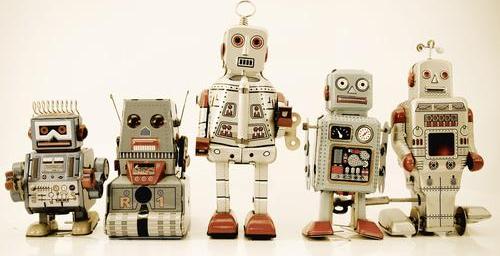Orion Jones
Managing Editor
Get smarter, faster, for success in the knowledge economy. Like us on https://t.co/6ZFWKpoKLi or visit https://t.co/d7r7dG2XOq
The invention of new 3D cinematic technology was supposed to revive the faltering film industry but more often than not, 3D filming is a gimmick, says film critic Ann Hornaday.
Health issues aside, there is a lot of money in marijuana. Regulating sales of the plant could generate substantial revenue and save all the money we spend now to push it underground.
With the passing of Steve Jobs, Amazon’s Jeff Bezos is the technology sector’s leading CEO-philosopher. Here are some tips directly from the man who continues innovating the Internet.
By revolutionizing how we interact with the Internet, Google’s augmented reality glasses will revolutionize the technology industry. Apple and Facebook should be afraid, very afraid.
MIT engineers have programmed small magnetic cubes to assume the shape of an object they come into contact with. The technology could be scaled down to sand-sized particles.
The next stage of 3D printing will be home-manufactured robots, say three of America’s ivy-league institutions, who have received a $10 million grant from the National Science Foundation.
A Dutch company is working to add floating infrastructure to expanding cities that face a coastline. Roads, parking ramps, and beaches could be rotated around tomorrow’s cities.
European and American companies have successfully tested new prototypes of flying cars. So how soon will you be able to lift yourself out traffic jams and fly home? That may depend on regulation.
Just ninety years ago, we thought our galaxy was the extent of the Universe. Now we know hundreds of millions of galaxies exist in an ever-expanding Universe. Where does that leave us?
Scientists have made the most accurate measurements yet of how quickly our Universe is expanding. Since gravitational pull gave way to dark energy, the rate is increasing.
Given the unequivocal success of NASA’s planet hunting mission, which has found 750 planets outside our solar system, an Earth-like planet will surely be found soon, say astronomers.
The discovery of ancient planets and new data suggesting that carbon may have formed in the early universe has overturned conventional wisdom about the possibility of very early life.
University students and private companies are racing to build the first private spacecraft to land on the moon. Google and the X Prize Foundation are offering $20 million to the winner.
A few simple concepts power today’s powerful data mining algorithms, allowing companies and governments to gather data about who you are, what you do and what you might do.
Young people are already used to social media being a part of nearly everything they experience. So will books become the next part of life to become an interactive conversation?
Nobody tasked with running a business wants to join another social networking platform. Here are some ways to use the platforms you already subscribe to more effectively.
In many areas, clean energy technology has already reached an apex. What remains lacking are efficient distribution channels and better consumer communication. IT can fix all that.
When attached to a headband, a new mobile device the size of a matchbox can pick up the electricity signals of your thoughts. Called iBrain, it is currently being tested on Stephen Hawking.
The model of the multinational corporation will give way to the multinational cooperative, say business experts. By 2025, cooperatives are expected to be a dominant business model.
As countries like China, India and South Africa come of age, they are more likely to adopt European-style national health care services than America’s peculiar brand of privatization.
Media professional Helen Croydon quickly tired of dating younger men in her profession. That’s when she discovered the world of ‘allowance dating’, i.e. finding sugar daddies online.
A new book which points out correlations between political views and character types (determined by genetics) misses the fact that climate change skepticism exists in Europe, too.
With Willard Mitt Romney, American politics has moved beyond the predictable Newtonian rules of campaigning, into the bewildering and unpredictable era of quantum politicking.
Some of the country’s most elite neuroscientists called a surprise press conference today, April 1st, to admit that their field of research is a hoax to justify their own research positions.
While creativity is often treated as ephemeral and serendipitous, Jonah Lehrer examines research suggesting we can all create the conditions under which creativity is more likely to thrive.
While studying a second language is known to be more difficult in adulthood, recent research shows that even adult brains can mimic the brain patterns of native speakers.
A survey conducted at a North Carolina business where dogs are regularly present suggests that employees have less stress, better morale and higher productivity in the presence of canines.
New research shows that people who self-identify as conservative distrust science as an institution. Is it because our culture has changed or because their brains are wired that way?
A robot designed to mimic the biology of a lamprey may soon be swimming through your body, with the capacity to detect the presence of diseases better than your immune system.
Cancer institutes from around the world have collaborated to release two databases which catalog data on hundreds of cancer cell lines, giving a boost to personalized medicine.





























